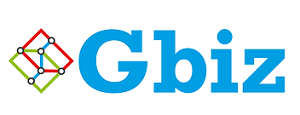
Employee benefits include several types of non-wage compensations given to workers on top of their basic salaries or wages. Cases where an employee or worker exchange wages for some extra benefits are known as salary exchange or packaging arrangement; in many states, many kinds of worker’s benefits are taxable to at least some rates depending on the country’s taxation system. These benefits include; housing and group insurance, including medical insurance, retirement benefits, sick leave, social security, employer student loans, domestic help, and other specialized worker’s benefits. If you are a job seeker/employee and have no idea about these benefits, the page will explain some types for you.
Medical benefits
This insurance cover is designed to cover all medical bills that include prescription drugs, surgeon, and physician fees to an employee. Optical and dental care might be offered as part of these benefits or as a separate package. These benefits depend on the employer’s terms; in many organizations, the benefits are extended to the dependents and family members. Companies or employers usually pay for medical premiums or deduct some percentage from monthly wages. Before picking an employer, try to find more on the terms regarding medical benefits and its operations to your family members.
Retirement Benefits
These are funds set aside to provide the employee with an income or personal pension when they end their careers. Retirement benefits fit into two types: defined benefit plan, which is sometimes known as a pension plan, the plan amount is pre-determined by your salary and the number of years in service. This plan allows the employer to bears the risk of the whole investment. On the other hand, defined contribution benefit makes the second category in retirement benefits to employees. Here the employee or the employer contributions are known and specified; however, the plan’s amount is usually tied to speculation returns, which, on many occasions, is not guaranteed.
Fringe Benefits
Fringe employee benefits are various types of non-cash payments used to retain talented and skilled employees. They include tuition and scholarship assistance, childcare and family spending accounts, flexible medical bills, and bonuses that are not tied to the worker’s performance. Tuition and scholarship reimbursement is crucial if the employee wishes to advance and increase his/her education. This is the best way to advance your education and career. Most organizations offering these benefits require you to advance in the related training to your job or the company’s operations.
Life Insurance
This benefit protects your family or beneficiaries if the employee dies. These benefits are paid at once to dependent or beneficiaries of the plan, usually kids or spouses. If you are an employee/worker, you can get this through your employer, who has a group plan. It is then wise before choosing an employer to first assess this policy’s terms before making any move towards signing any contract. The enterprise that offers these benefits is normally tied to all full-time workers in larger and medium firms but can vary depending on its employer’s benefit plan. Inconclusion about employee benefits, it is wise for an employer to have these benefits as they motivate workers to be productive and innovative.
